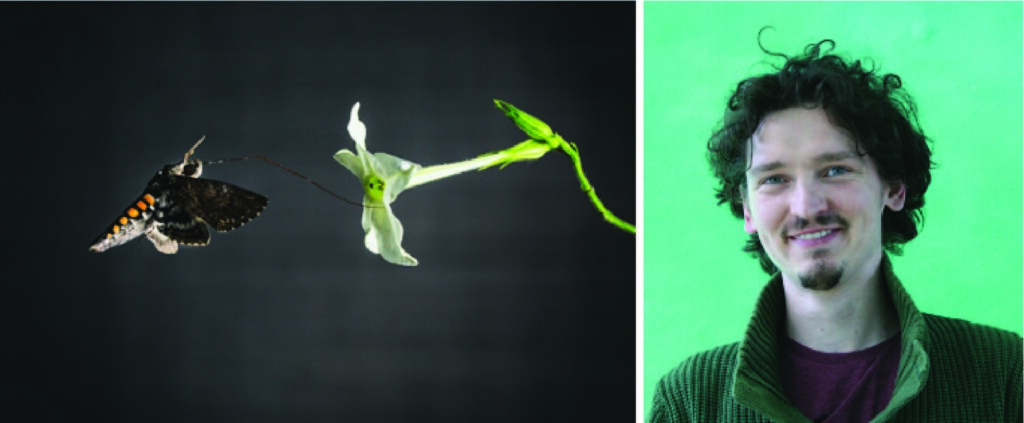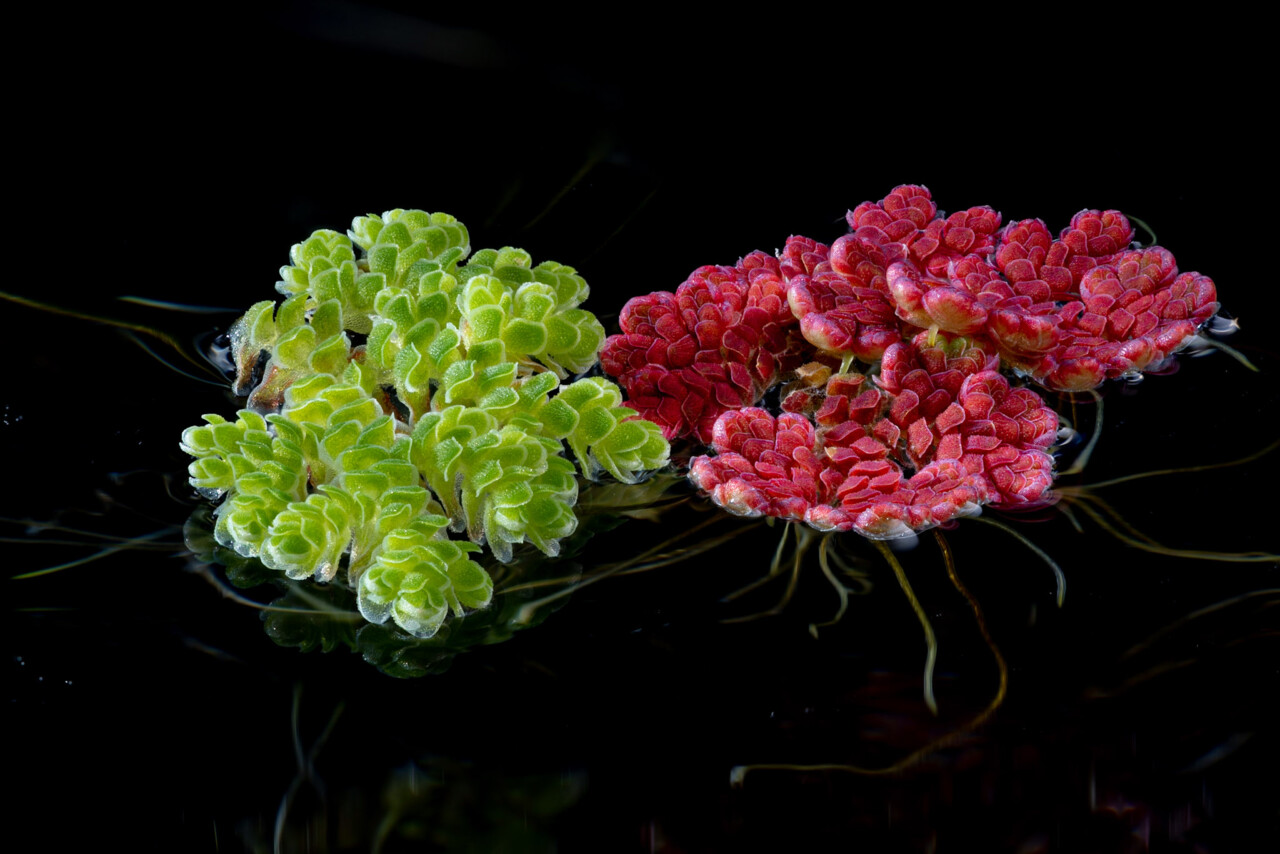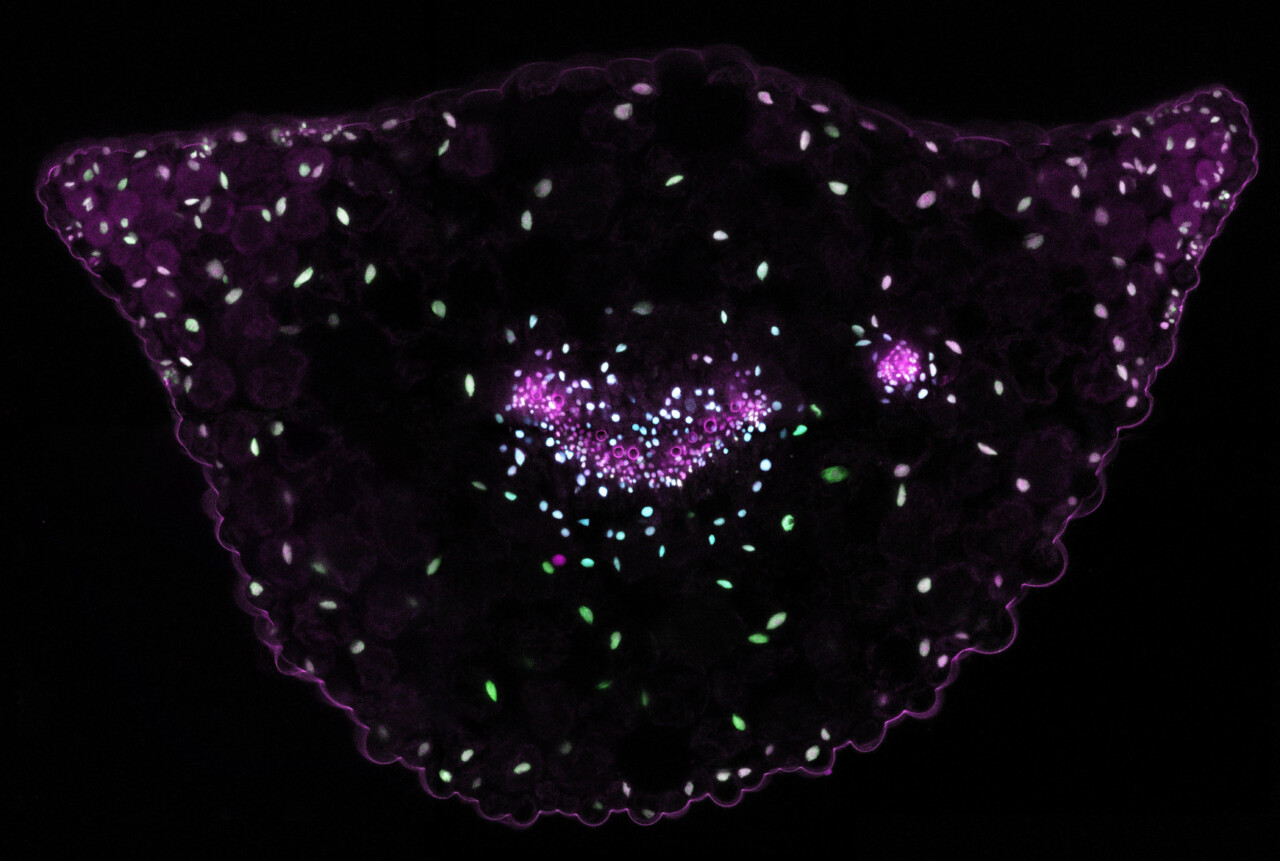
Dr. Alexander Haverkamp “Odor-guided behavior in pollinating insects”
Department of Plant Sciences, Wageningen University & Research
Insect behavior is largely driven by chemical cues from their environment. Many of these behavioral patterns are innate responses to specific combinations of volatiles, which are often the result of a long process of co-evolution. In this seminar I will discuss the importance of flower volatiles for the foraging behavior of the hawkmoth Manduca sexta. With its extremely long proboscis, this moth is a specialist pollinator of different night pluming flowers in North- and South America, which have corolla tubes that match the size of the moth’s proboscis. I will present the latest insights into how this moth uses flower odors to select those flowers that match its proboscis and guarantee the highest energy return for the moth during foraging. I will then explore how this intimate relationship between the moth and the flower is affected when either the floral volatile emissions are silenced by RNA interference or the genes responsible for odor detection in the moth are knocked-down using CRISPR-Cas9.
In spite of their crucial importance for insect behavior, chemical information is also highly dynamic and influenced by many environmental factors. Due to this, even highly stereotypic behaviors have to be modified through learning or developmental plasticity. In the second half of this talk I will focus on how hawkmoths use learning to adjust their foraging behavior when the odors of their preferred flower become degraded through environmental pollution. Finally, I will present some mechanisms for learning and neuronal plasticity in the insect brain and discuss how these might help the insect to deal with an ever-changing environment while also preserving co-evolved interactions such as those between plants and their pollinators.
The seminar will be hosted on zoom and the seminar can be accessed via the following link https://us02web.zoom.us/j/87486022373
Additionally, the link to the seminar will be posted online on our web site (www.weeswageningen.nl) in the week of the seminar. If you experience any problems with accessing the seminar, please contact us at weeswageningen@gmail.com.
Wednesday, November 25, 2020
16:00 - 17:30
,



